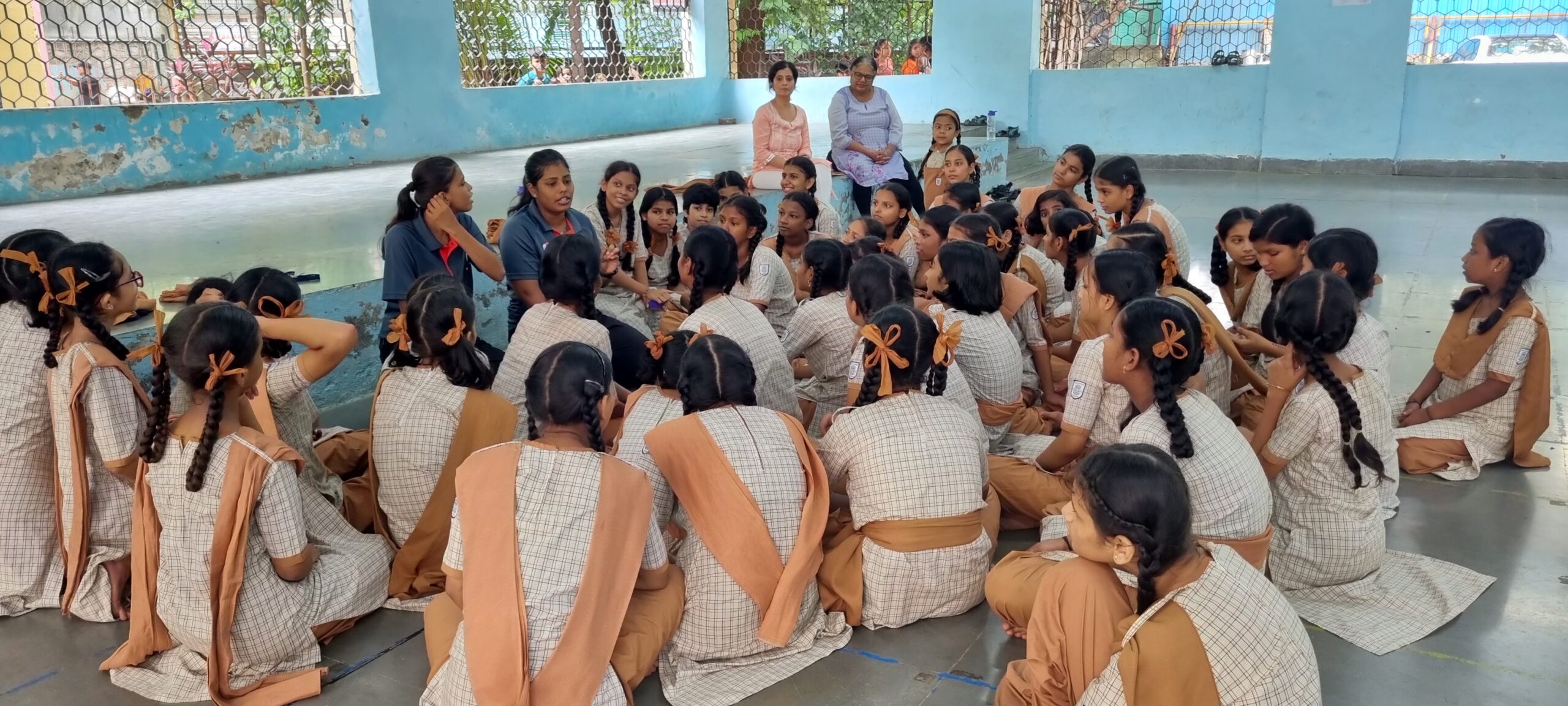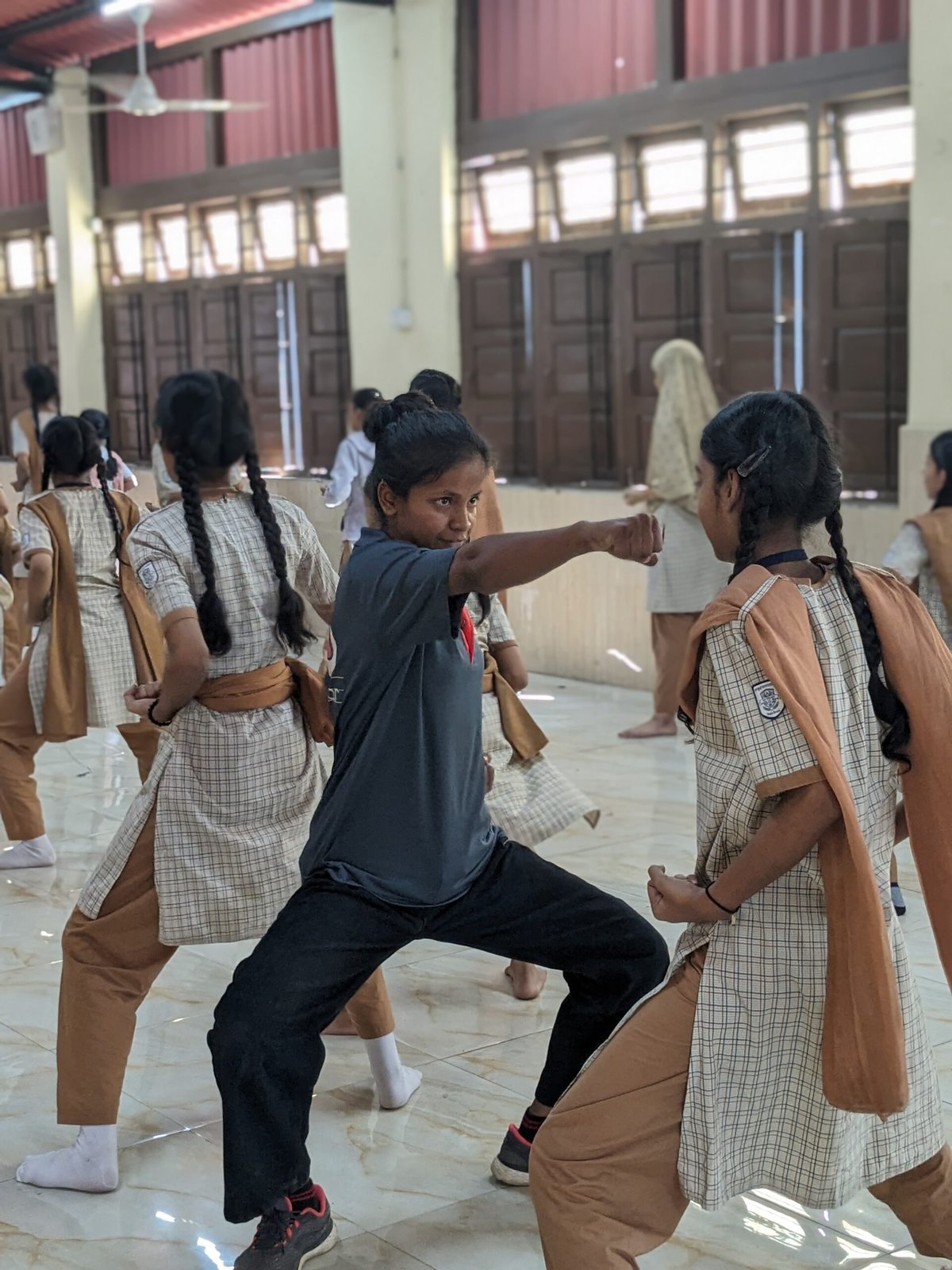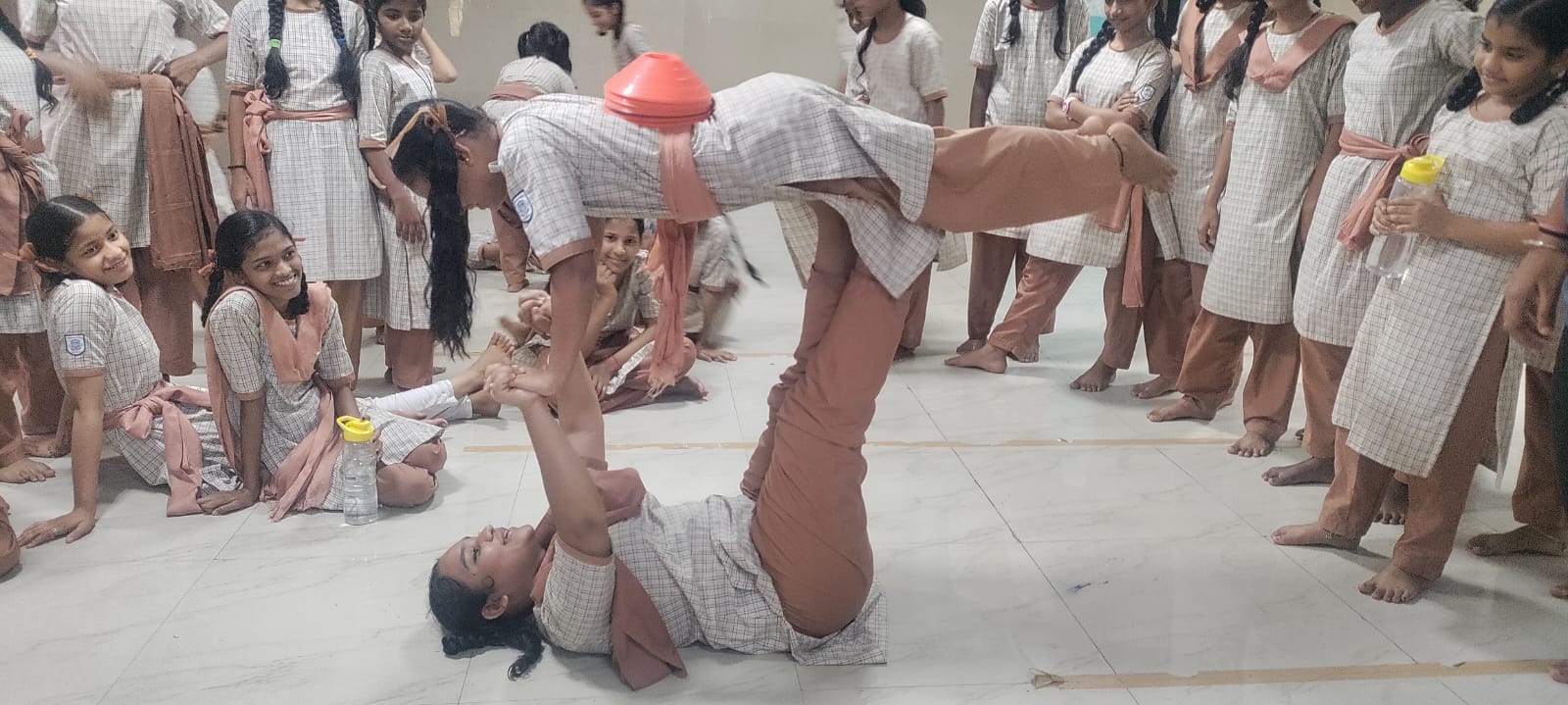But they have both also been taught that violence is not a knee-jerk response, but a last resort. “If we fight, we will also get hurt, but we can speak up,” Iqra declares with the wisdom of one far older.
And speak up they do, at every chance. “At my cousin’s wedding, a boy I don’t know started teasing me,” Fatima recalls. “When I shouted at him, his mother intervened and scolded him. Earlier I used to feel nervous in such situations, I used to think, ‘I am a small girl, what can I do?’”
As Sharma describes it, “We are not telling them that violence is the answer, but that violence should not be tolerated.”


The MukkaMaar website states, “It is necessary to recognize that violence includes microaggressions, discrimination, threats, and loss of opportunity as much as assault.” The training, therefore, does not just cover self-defense but also building physical fitness and emotional strength, as well as boosting (and often instilling) self-confidence.
Senior training fellow, Bhishma Mallah, 26, who has been with MukkaMaar for over four years, says that the girls begin with so many barriers, like shame and fear, that even to get them to exercise in front of others or to express themselves verbally is a challenge. “We train them to vocalize their feelings, to open up their shoulders and lift up their chins. We have to tell them repeatedly to forget about adjusting their dupatta [traditional scarf used to cover head or shoulders] and focus on the activity.”


One of the many ways in which the trainers chip away at the diffidence of these young girls is by making them chant “I am important” even as they practice their moves. Or asking them to imagine how a dog growls, and to channel that aggression in their kicks and punches.
Each hour-long session includes 20 minutes of conversations and counseling, with the remaining time devoted to physical training. “We teach them about concepts like boundaries, consent and safe touch. Even during lessons, they have to take permission from their partner before any physical contact,” explains Mallah.
Sharma admits it took her a couple of years to realize that for a girl to build agency, there is a lot of familial and social conditioning that needs to be undone. “There is no point in teaching them martial arts alone, with its focus on discipline and technique — because unless we teach them critical thinking, it is all pointless, and forgotten the minute they step out of the classroom,” says Sharma.
Red Dot Foundation founder D’Silva adds a word of caution: “It’s not enough to just empower the girls to speak up, it is also the responsibility of adults to listen to them when they do. If their parents or teachers don’t take them seriously, then the child will quickly learn not to tell anyone — because there is the added fear of having their personal freedom curtailed under the guise of protecting them or saving the family honor.”
A change in the larger ecosystem may take a long time, but it is clear that something is shifting within these girls. While one cohort confronted a cop making a video call in front of them and challenged him to prove he was not taking their photos without permission, another group of girls gathered the courage to file a police complaint against their physical education teacher who had been harassing them. For others, it has meant something as seemingly trivial as talking back to their fathers and challenging gendered rules and restrictions.


These may seem like small incidents, but for these young girls in Mumbai, the freedom to think independently and challenge those around them has been life-changing.
In the short run, Sharma says MukkaMaar wants to focus on fewer places and create retention, rather than spread the program thin all over the city. The future is digital for MukkaMaar alumni, with a chatbot that helps the girls have a two-way conversation about self-defense techniques, physical fitness, understanding of different types of gender violence and soft skills like communication and negotiation. This keeps them connected to the program, and to everything they learned in it, even after they leave.

